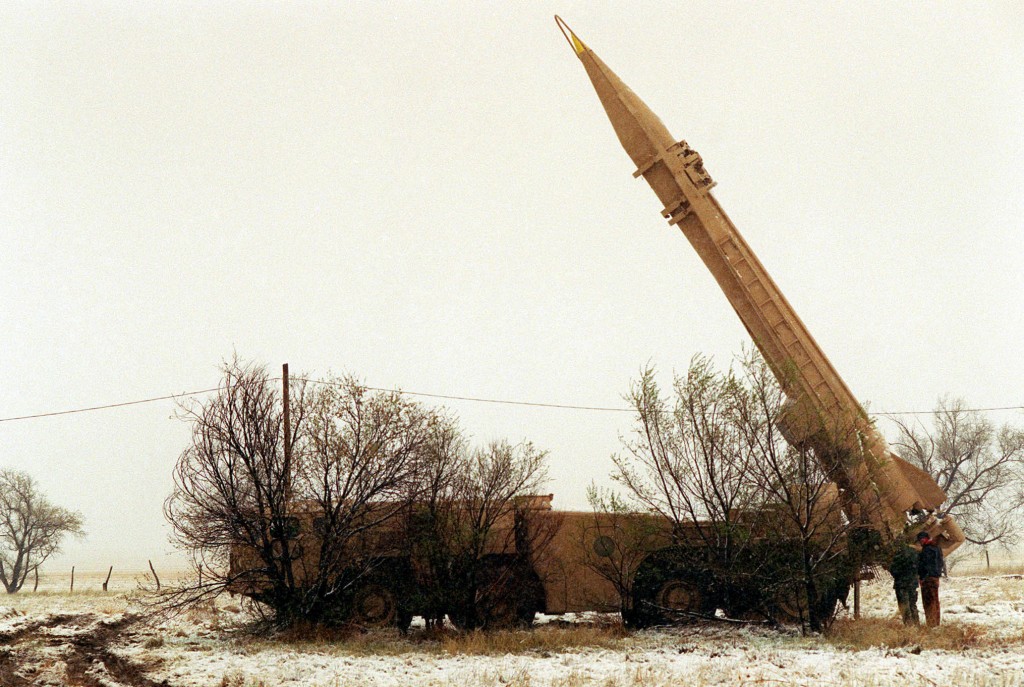 For a small nation that had its rebirth only recently in history, Israel has made tremendous progress. The Jews have transformed the land into a fertile agricultural region, built impressive cities, and have grown their economy into one of the greatest success stories of modern history. In 2012, Israel was ranked 22nd out of 142 countries by the World Economic Forum for their Global Competitive Index. In 2013, Israel was ranked 25th in the world by the International Monetary Fund for per capita GDP (gross domestic product). The vibrant economy of Israel has resulted in a high growth market that routinely out-performs the U.S. in percent GDP growth. They are also a vigorous exporter of a broad range of products, including electronics, telecommunications equipment, military equipment and weapons, pharmaceuticals, machinery, diamonds and jewelry, agricultural products, chemicals, textiles, and clothing. All of the largest multinational companies in the world now have offices and facilities within Israel. In particular, the pharmaceutical and biotech industries are major growth engines for Israel with all of the major drug companies developing new products within the country. The Jews have created a spirit of intense innovation which is driven by top tier academic and corporate research. Their drive toward greater and greater success has created the most vigorous economy in the Middle East region. Unfortunately, all of this prosperity is actually teetering on the brink of disaster due to the forces that surround Israel and want to destroy them.
For a small nation that had its rebirth only recently in history, Israel has made tremendous progress. The Jews have transformed the land into a fertile agricultural region, built impressive cities, and have grown their economy into one of the greatest success stories of modern history. In 2012, Israel was ranked 22nd out of 142 countries by the World Economic Forum for their Global Competitive Index. In 2013, Israel was ranked 25th in the world by the International Monetary Fund for per capita GDP (gross domestic product). The vibrant economy of Israel has resulted in a high growth market that routinely out-performs the U.S. in percent GDP growth. They are also a vigorous exporter of a broad range of products, including electronics, telecommunications equipment, military equipment and weapons, pharmaceuticals, machinery, diamonds and jewelry, agricultural products, chemicals, textiles, and clothing. All of the largest multinational companies in the world now have offices and facilities within Israel. In particular, the pharmaceutical and biotech industries are major growth engines for Israel with all of the major drug companies developing new products within the country. The Jews have created a spirit of intense innovation which is driven by top tier academic and corporate research. Their drive toward greater and greater success has created the most vigorous economy in the Middle East region. Unfortunately, all of this prosperity is actually teetering on the brink of disaster due to the forces that surround Israel and want to destroy them.
This dichotomous situation was clearly predicted in the Bible thousands of years ago. On the positive side, Isaiah prophesied that when the Jews returned in the last days, the land that had laid barren and waste for centuries would bloom abundantly and would fill the world with fruit:
“The wilderness and the dry land shall be glad; and the desert shall rejoice, and blossom as the rose.
“It shall blossom abundantly, and rejoice even with joy and singing; the glory of Lebanon shall be given unto it, the excellency of Carmel and Sharon: they shall see the glory of Jehovah, the excellency of our God.”
Isaiah 35:1-2
“He shall cause them that come of Jacob to take root: Israel shall blossom and bud, and fill the face of the world with fruit.”
Isaiah 27:6
 Although these verses definitely have application to Israel during the Kingdom Age after Christ returns, they also reflect what has happened to the nation since their rebirth. Israel’s ingenuity and determination has made them essentially self-sufficient in building toward one of the most highly developed nations in the world today. Their consumer-driven economy was created with very little outside help and in the most adverse conditions imaginable. In recent years, the discovery of vast oil and gas fields in the Levant Basin and the Jezreel Valley have provided Israel with energy reserves that rival those in the Arabian Peninsula in total quantity. Israel is clearly positioned for economic success far beyond that of their neighbors and beyond even much of the rest of the world. Whereas the Palestinians and the rest of the Arab world mainly suffer with meager economies and low standards of living (except for a few elite in the oil rich nations), Israel sits at the top in the Middle East in economic and military terms.
Although these verses definitely have application to Israel during the Kingdom Age after Christ returns, they also reflect what has happened to the nation since their rebirth. Israel’s ingenuity and determination has made them essentially self-sufficient in building toward one of the most highly developed nations in the world today. Their consumer-driven economy was created with very little outside help and in the most adverse conditions imaginable. In recent years, the discovery of vast oil and gas fields in the Levant Basin and the Jezreel Valley have provided Israel with energy reserves that rival those in the Arabian Peninsula in total quantity. Israel is clearly positioned for economic success far beyond that of their neighbors and beyond even much of the rest of the world. Whereas the Palestinians and the rest of the Arab world mainly suffer with meager economies and low standards of living (except for a few elite in the oil rich nations), Israel sits at the top in the Middle East in economic and military terms.
Contrary to popular belief, the initial success and development of Israel was not the result of outside help. Throughout the 1950’s and 1960’s American aid to Israel was relatively small and the Jews built everything from virtually nothing. That all changed, however, by the continued strain of defending their small country against much larger adversaries which surrounded them and wanted to see them destroyed.
 The third Arab-Israeli War was really the tipping point that changed everything. The sheer magnitude of the 1973 war and the resultant debt Israel incurred to fight and win it, combined with the Arab oil embargo that quickly followed, proved to be too much for their economy to withstand. Inflation shot up, the national debt ballooned, and regular loans and cash grants from the U.S. became necessary just to sustain their precarious financial position. Even Israel’s peace treaty with the major confrontation state of Egypt in the late 1970s only seemed to worsen the economy as they were forced to give up access to the lucrative Sinai oil fields in the bargain. The nation was teetering on the brink of disaster from a number of internal and external forces that they could not control.
The third Arab-Israeli War was really the tipping point that changed everything. The sheer magnitude of the 1973 war and the resultant debt Israel incurred to fight and win it, combined with the Arab oil embargo that quickly followed, proved to be too much for their economy to withstand. Inflation shot up, the national debt ballooned, and regular loans and cash grants from the U.S. became necessary just to sustain their precarious financial position. Even Israel’s peace treaty with the major confrontation state of Egypt in the late 1970s only seemed to worsen the economy as they were forced to give up access to the lucrative Sinai oil fields in the bargain. The nation was teetering on the brink of disaster from a number of internal and external forces that they could not control.
When Israel pulled their defense forces out of Lebanon in the mid-1980s, signaling the end of their fifth full scale war in 37 years (this time against the terrorist group called the PLO or Palestine Liberation Organization), in many ways that war became the most difficult of all to endure. Not only did they suffer 650 casualties, a huge number for a country of Israel’s size, but for the first time their own public opinion was severely divided on the merits of the war. In its wake, the Lebanese invasion left Israel torn from within and threatened from without.
Israel’s internal monetary woes and external enemies combined to paint a bleak picture for the nation. Israel was teetering on the brink of disaster on a number of fronts, which began to cause major stress fractures within their society and economy. At that point, Israel faced:
1) An inflation rate that at one point reached 71% in the late 1970’s. However, from 1980 to 1983 the rate of inflation reached triple digits (123%) and skyrocketed to 345% in 1984 and 1985. For one month during that year (September) the rate actually exceeded 1000% if calculated on an annual basis. The inflationary trends didn’t moderate until the late 1990s when they finally came down to the low single digits again.
2) An ever rising foreign debt and a rapidly increasing internal debt due to the constant threats from the surrounding Arab states as well as a growing number of terrorist organizations. At one point, their foreign debt was among the highest in the world on a per capita basis.
3) An immigration rate that slowed to a halt during the mid 1980’s causing a fear that any further migration of world Jewry back to Israel would not occur. Since 1989, however, that situation has been reversed by the huge migration of Soviet Jews to Israel as a result of the Soviet bloc’s disintegration. When Mikhail Gorbachev opened the Russian borders and allowed Jews to emigrate out of the country, a total of nearly one million Soviet Jews immigrated to Israel, and it is expected that hundreds of thousands more will come to Israel in the coming years. This unexpected immigration has put a tremendous drain on the resources of a country already strapped for cash. Lack of sufficient housing, food, and jobs are major problems for the increasing immigrant population, many of whom live in desperate poverty.
4) However, Israel also has a very real emigration problem (Jews leaving the country) that has threatened their continued industrial and technical competitiveness. Those Jews that leave the nation are often the most successful and brightest, because they are the most able to make the move to another country. As of 2011, Prime Minister Benjamin Netanyahu’s government had estimated that between 800,000 and 1 million Jewish citizens were living abroad—which may represent up to 20% of the current Jewish population of Israel. In addition, many of those who have left the country are filing applications to drop their Israeli citizenship entirely. A combination of the continued terrorist activities of Palestinian militant groups toward innocent Israeli citizens, the threat of missile attacks from Hamas in Gaza or Hezbollah in Lebanon, and the broader threat of war from radical Islamic states have all placed increased pressure on the emigration rate.
5) A tax rate in Israel that has ranged from 10% to 50% on earned income is compounded with an additional value added tax (VAT) rate of 17% to maintain a very high total tax burden on Israeli citizens regardless of the direction that money flows. This tax revenue is necessary from a strategic perspective, because Israel is surrounded by hundreds of millions of enemies, all of which would like to see them obliterated as a nation.
6) An incredibly high Israeli defense budget that was estimated by the International Institute for Strategic Studies in 2013 to be $18.2 billion, which represents about 6% of Israel’s GDP. This rate is far greater as a percent of GDP than any of the other major military powers in the world. This spending only further reflects their precarious position in the Middle East—both from an economic and a military perspective.
If these statistics represented the condition of a large, normally prosperous nation then it would perhaps only indicate a temporary period of economic stress or recession—something that would pass with time and eventually lead to recovery—but for tiny Israel surrounded by millions of sworn enemies these conditions threatened their very survival. In reality, Israel has repeatedly moved close to the brink of disaster over the decades since they became a nation. The stress of life for the average Israeli citizen reflects this constant struggle to merely survive, let alone prosper.
 The victory for the U.S. in the first war with Iraq in 1991 didn’t help this situation either. For the first time in Israel’s history they had to endure an attack from an Arab enemy without responding militarily. As Scud missiles fell on Tel Aviv and the West Bank, the fear factor inside Israel increased exponentially. Their lack of response wasn’t because Israel was incapable of defending themselves against the missiles. If Israel were to have attacked Iraq in retaliation for bombing their territory, the Arab league would have been fragmented in their stand with the U.S. against Iraq’s incursion into Kuwait. If Israel would have been drawn into the conflict, a much broader war might have resulted by forcing their old Arab adversaries to respond.
The victory for the U.S. in the first war with Iraq in 1991 didn’t help this situation either. For the first time in Israel’s history they had to endure an attack from an Arab enemy without responding militarily. As Scud missiles fell on Tel Aviv and the West Bank, the fear factor inside Israel increased exponentially. Their lack of response wasn’t because Israel was incapable of defending themselves against the missiles. If Israel were to have attacked Iraq in retaliation for bombing their territory, the Arab league would have been fragmented in their stand with the U.S. against Iraq’s incursion into Kuwait. If Israel would have been drawn into the conflict, a much broader war might have resulted by forcing their old Arab adversaries to respond.
When the gulf war ended, Israel was left with the realization that their enemies could lob ballistic missiles on their tiny country almost with impunity. This included even large missiles that could carry conventional explosives, chemical or biological weapons, or even nuclear warheads. Though the Scud missiles were notoriously inaccurate and Israel used anti-missile batteries to help defend their cities, the fact that Iraq had amassed hundreds of Scuds and that they could be made to carry weapons of mass destruction sent fear into the hearts of every Jewish citizen. The images of panic-stricken people desperately donning gas masks as Scud missile alerts sounded throughout Israel will forever be emblazoned in the minds of every person who watched the live coverage of the gulf war.
In the years since that time, the military threat only kept growing in severity as new high-tech weapons were acquired by all the Arab nations and even some terrorist groups. This has resulted in Hamas in the Gaza Strip and Hezbollah in Lebanon and Syria acquiring newer longer-range missiles from Iran and North Korea with vastly improved targeting mechanisms, which can precisely hit cities or even building. It is estimated that these terrorist groups now have tens of thousands of mobile missiles that can be used upon Israel at any time. Although Israel’s 2014 war in the Gaza Strip destroyed or depleted most of Hamas’ inventory of missiles, they will likely seek to resupply themselves in the coming months and Hezbollah’s inventory of missiles in Lebanon has remained unaffected.
 How long can the Jewish nation survive in such a precarious state? One thing we must not forget is that if the nation of Israel is truly a fulfillment of prophecy, then God has a definite plan for them, which includes leading them to a rendezvous with judgment. The End Times Truth is that everything that has happened to them in this generation has been under the control and sovereignty of their Savior, Jesus Christ, whom they rejected 2,000 years ago. Since Israel’s rebirth as a nation in 1948, the Lord has made them prosper in their land, but He has also kept them teetering on the brink of disaster. The fact is, He is leading them to the prophesied Time of Jacob’s Trouble to bring them to repentance and salvation, just as the Bible predicted through the prophet Jeremiah:
How long can the Jewish nation survive in such a precarious state? One thing we must not forget is that if the nation of Israel is truly a fulfillment of prophecy, then God has a definite plan for them, which includes leading them to a rendezvous with judgment. The End Times Truth is that everything that has happened to them in this generation has been under the control and sovereignty of their Savior, Jesus Christ, whom they rejected 2,000 years ago. Since Israel’s rebirth as a nation in 1948, the Lord has made them prosper in their land, but He has also kept them teetering on the brink of disaster. The fact is, He is leading them to the prophesied Time of Jacob’s Trouble to bring them to repentance and salvation, just as the Bible predicted through the prophet Jeremiah:
“For, lo, the days come, saith the Lord, that I will bring again the captivity of my people Israel and Judah, saith the Lord: and I will cause them to return to the land that I gave to their fathers, and they shall possess it.
“And these are the words that the Lord spake concerning Israel and concerning Judah.
“For thus saith the Lord; We have heard a voice of trembling, of fear, and not of peace.
“Ask ye now, and see whether a man doth travail with child? wherefore do I see every man with his hands on his loins, as a woman in travail, and all faces are turned into paleness?
“Alas! for that day is great, so that none is like it: it is even the time of Jacob’s trouble, but he shall be saved out of it.”
Jeremiah 30:3-7
Even in these last days, Israel has been blessed by the Lord as they return to their land in miraculous rebirth. However, according to Jeremiah the dangers that Israel faces in the Middle East are to be the “birth pains” of their true rebirth, not just as a nation, but in faith and reliance on Christ. The events that are predicted to happen to Israel in the end times are designed to turn their hearts back to God and finally make them willing to receive their one true Savior, Jesus Christ, at His Second Coming. That day is close at hand.
Next: The Palestinian Problem


